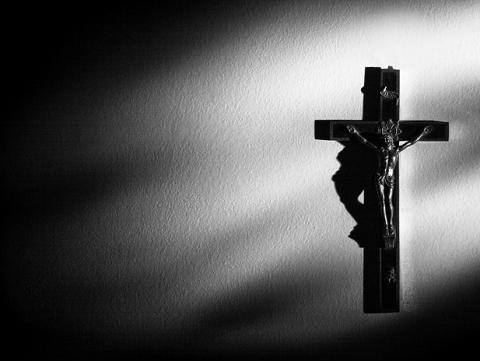An inconsistent 'ethos'

Minister Ruairi Quinn has not yet finalised his (ambitious) plans for school patronage, but the usual suspects have, for some time already, been banging a drum on behalf schools owned by the Catholic Church and/or professing a Catholic 'ethos'.
The common thread in arguments advanced by Breda O'Brien, Senator Ronán Mullen and David Quinn is that of 'parental choice'. It seems intuitively correct to say that if parents wish to fund and send their children to a denominational school that should be their prerogative. The usual qualifications apply that this should not impact on the quality of education.
However, the perversity of this line of argument is in how it attempts to don the clothes of victimhood. Catholic interlocutors seem to be pre-empting a plan Minister Quinn simply does not have: to secularise the entirety of Irish education and write Catholic schools out of existence.
Archbishop Diarmuid Martin at least seems to understand the situation more acutely than these defenders of the faith, when he admits that Catholic patronage as it is now (in over 90% of schools) is untenable.
Patsy McGarry, of the Irish Times, has in the past wondered aloud what exactly a Catholic 'ethos' amounts to. We received something of a clue last week from the Irish Children's Ombudsman.
Emily Logan was bitterly critical of an unnamed school in Munster, with a stated Catholic 'ethos', which twice refused to enrol a pregnant 16-year-old. On the first occasion it was because she was pregnant; and at the second instance because she is (now) a single mother.
There are no laws preventing such discriminatory enrolment policies: which probably explains why the school's principal was so unguarded in giving his reasons. Despite a request from the Ombudsman he has not yet apologised to the teenager in this case.
I can only reliably invoke my own experiences of Catholic education in Co. Cork. In a 40-mile radius there was not a single school which was non-denominational. My parents' choices, then, were extremely limited if they came into conflict with a Catholic 'ethos' - they did not.
This teenager's (and her parents') 'choice' is similarly restricted, and the Iona Institute is hardly chomping at the bit to vindicate it. To judge from the recent census returns, it is a high statistical probability that the teenager at the heart of this case is a baptised Catholic herself.
A backdrop that also ought to inform our reading of the fiasco is this year's 20th anniversary of the X-Case. Here is a teenager who brought her child to term (she had a clear moral imperative to do so, according to Church teaching), and now seeks an education. She was spurned by a school that had recourse to the very same body of moral teaching. 'Damned if you do and damned if you don't' springs to mind.
There is not a little irony inherent in all of this: that if she had concealed her pregnancy and quietly aborted the child in another jurisdiction then the school would have lacked the grounds to refuse her enrolment. And thus that other cliché seems informative: 'Out of sight, out of mind'.
A variety of comments supportive of the school's decision can be sampled on the RTÉ website (link).
Several commenters praised the school principal for standing up to 'lax morals' amongst our youth (see also here). Denying a teenager an education seems like an extraordinarily vindictive 'punishment'; not to mention that it would increase the likelihood that she would become dependent on her parents and/or social welfare payments.
Others still remarked that the school has disclaimed all responsibility to be fair or non-discriminatory because it is 'privately owned.' Perhaps the commenters in question are libertarians without knowing it, but they will be disappointed to hear that the school receives tax-payer monies for its teachers' salaries. If that was not enough to oblige it not to be discriminatory, however, basic decency should also be a powerful counter-argument.
Finally, some commenters confidently set up (and then knocked down) the strawman that the school was owned by the Catholic Church. It had never been suggested that the Church owned the school. The school professes a Catholic 'ethos'.
One also hopes that some of the more paternalistic comments on this case are not a reflection of how far Ireland has yet to come. For example:
Seeing as how some time had to pass between falling pregnant, failing to be enrolled at the first instance, giving birth, and then being refused for enrolment a second time, 'rushing' to the Ombudsman is hardly the correct choice of verb.
Unless the commenter wanted to portray the girl, and those helping her, as meddlesome, litigous and better off 'minding their own business'. {jathumbnailoff}
Image top: claude.attard.bezzina.
